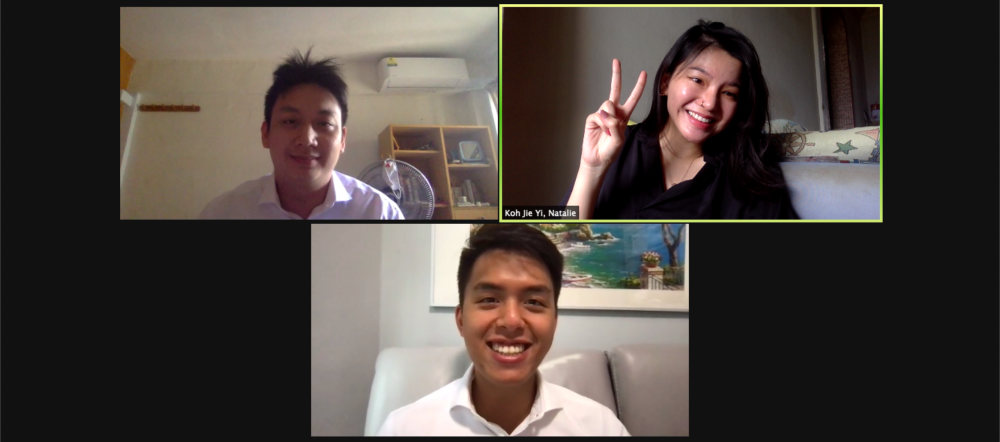During the COVID-19 pandemic, lectures, seminars and tutorials turned virtual or hybrid. For the first time in NUS Business School’s history, senior students had to do their entire Field Service Project (FSP) remotely too.
This story documents the journey one group took with their assigned company, Unilever. In spite of their circumstances, the group stood firm and overcame odds to bring their project to completion.
A bumpy start, a beautiful finish
The FSP team of three, comprising BBA seniors Aloysius Tan, Natalie Koh and Tan Wei Xiang began their project in the thick of the pandemic outbreak. The inability to meet physically left them with a low morale. They had no ideas for making e-commerce recommendations for two of Unilever’s brands—Signal and P/S—in the French and Vietnamese markets respectively.
Help came from their faculty adviser, Associate Professor Prem N Shamdasani, who told them to see things on the brighter side – an e-FSP project frees up more time to source for e-resources which are always available online, rain or shine. These lengthy papers, albeit time-consuming and sometimes tedious to look through, are vital for the success of the project because it will build us a stronger foundation for our future claims or recommendations on toothbrush consumption specific to the two identified markets.
Winning ingredients: Perseverance and structure
They decided to do the project systematically, breaking down this massive project into smaller achievable milestones. This included research, analysis of the brands’ needs, formulating ideas and communicating them effectively. They also set internal deadlines for some tasks and worked towards the deadlines.
Though physical meetings were not possible, the team much appreciated the luxury and convenience of scheduling 15-minute meetings at short notice using teleconferencing applications like Zoom.
During the process, there were times when ideas did not work out, and the team felt like giving up. With the support and guidance from the Unilever team and Assoc Prof Shamdasani, however, the three soldiered on. Aloysius, Natalie and Wei Xiang eventually outdid themselves by impressing the Unilever team with their recommendations, such as the proposal of a multi-pronged strategy which is both creative and fresh to the toothbrush industry, while keeping close to the existing technology or interfaces which can be further improved to work aligned with the new strategies. This ‘all-in-one’ approach comprised of a main e-commerce strategy which will ensure a seamless transition of current offline consumers to their respective online mediums, while injecting tactful call-to-action for these consumers with several methods, such as a clear linkage to a charitable cause. These methods the team has cleverly sieved out have been proven to be effective to many low involvement products, which were insights garnered from months of research done behind the scenes.




